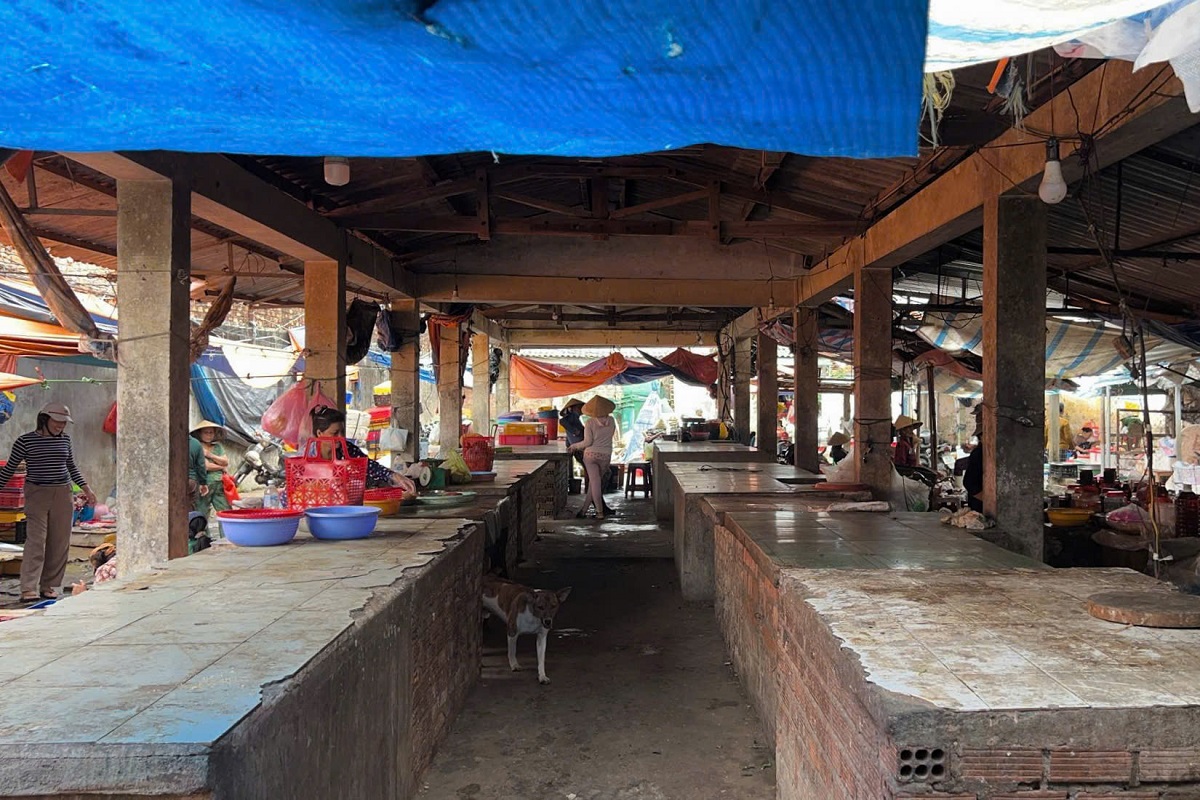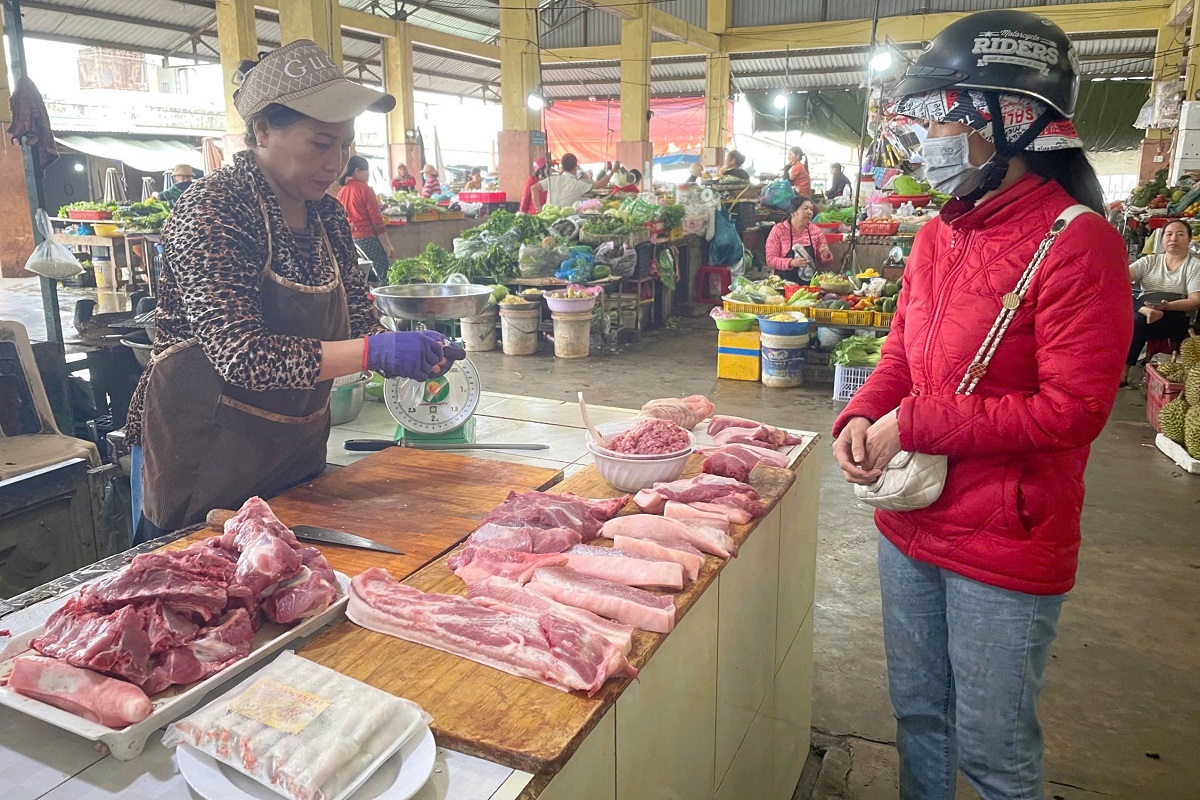On the morning of 26/7, most pork stalls at Chau Sa market in Quang Ngai stood empty, abandoned after days of slow sales. A few vendors remained. They explained that this year's outbreak in nearby villages, coupled with images of pigs being culled or discarded in canals, has frightened consumers.
Chau Sa market, located on the road from central Quang Ngai to My Khe beach, is a popular spot for residents to buy locally sourced pork. However, this customer base has dwindled over the past two weeks.
"I used to stop by the market after my morning swim to buy pork because I felt it was safe. But with the African swine fever spreading among small-scale farms, I haven't dared to buy any for two weeks," said Thanh Nhan, a resident of Cam Thanh ward.
Similarly, many pork stalls have closed in larger markets like Quang Ngai market, Hang Ruou market (Truong Quang Trong ward), and Chua market (Nghia Hanh). Vendors at the remaining open stalls try to reassure customers while they sell.
 |
Almost all pork stalls at Chau market are empty due to the lack of customers. Photo: Pham Linh |
Almost all pork stalls at Chau market are empty due to the lack of customers. Photo: Pham Linh
Pork sales have also slumped in Gia Lai. Nguyen Thi Ly, a vendor at Hoa Lu market, said her daily sales have plummeted from hundreds of kilograms to just tens, a tenfold decrease.
Ly explained that her family sources pork from a closed, quarantined farm, ensuring its safety. However, the prevailing fear has deterred most shoppers. Instead, people are opting for other meats like beef and chicken.
This hesitancy to buy pork is not only affecting vendors but also impacting restaurants, as pork dishes are being avoided.
Vendors urge authorities to swiftly address the African swine fever outbreak, strengthen inspection and slaughter controls, and restore public confidence in the market.
 |
Pork stalls at Hoa Lu market in Gia Lai are deserted. Photo: Tran Hoa |
Pork stalls at Hoa Lu market in Gia Lai are deserted. Photo: Tran Hoa
According to the Sub-Department of Animal Husbandry and Veterinary Medicine of both Quang Ngai and Gia Lai, African swine fever does not transmit to humans. Consumers should not be overly concerned if the pork they purchase bears the proper inspection stamp.
Do Van Chung, Director of the Quang Ngai Sub-Department of Animal Husbandry and Veterinary Medicine, stated that inspections and slaughter controls have been intensified during the outbreak. "Vendors must present pigs with negative African swine fever test results before they can be slaughtered. Consumers can be assured of the safety of inspected pork," Chung said.
Huynh Ngoc Diep, Director of the Gia Lai Sub-Department of Animal Husbandry and Veterinary Medicine (Department of Agriculture and Rural Development of Gia Lai province), confirmed that all vehicles transporting animals in and out of the province are rigorously inspected. Drivers transporting pigs without proper documentation or proof of origin are detained, their cargo quarantined, and administrative penalties are applied for violations.
Local authorities are advising farmers to implement sanitation measures in their farms, control human and animal access to farming areas, isolate and cull infected pigs, and penalize improper disposal of diseased animals.
According to the Ministry of Agriculture and Rural Development, 636 outbreaks have occurred across more than 28 of 34 provinces and cities since the beginning of the year. Over 43,000 pigs have been culled. In the past two months, African swine fever has surged in northern provinces like Cao Bang, Lang Son, Tuyen Quang, Hanoi, and central coastal provinces like Quang Ngai and Quang Tri.
Tran Hoa - Pham Linh












